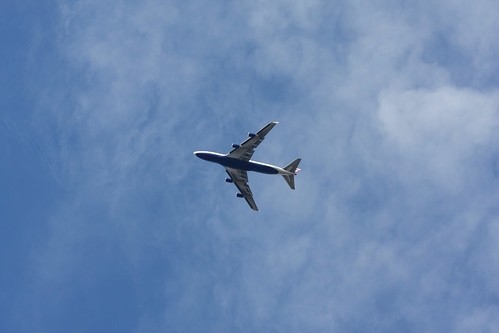Come Fly With Us
When people talk sustainable business, it’s natural to conjure up pictures of eco-friendly this and 100% recycled that, but what if your business is discussed more for the damage it does to the environment, than for its positive impact? In that situation, you have a lot of groundwork to make up, and it takes a really good PR team to fix your image. Part of their work will be coming up with positive social and environmental changes that their customers can see.
Welcome to the world of an Airline.
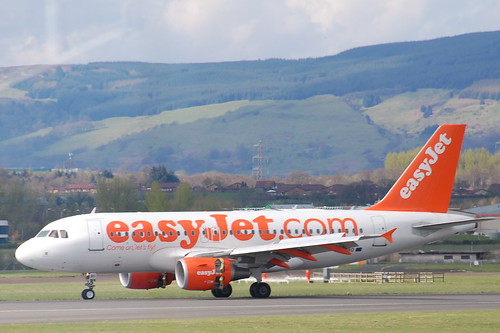
We are a recycling company at the end of the day, so we are going to use this fantastic fact. 65% of people want planes that are fully recyclable. I wonder if they have ever seen this guy?
It’s not an easy life for Airlines
You must admit they provide a service that most of us have used, and yet almost all of us know that aeroplanes are bad for the environment. Though, if you think about it, aeroplanes are perhaps not as bad for the environment if you look at things from another perspective. 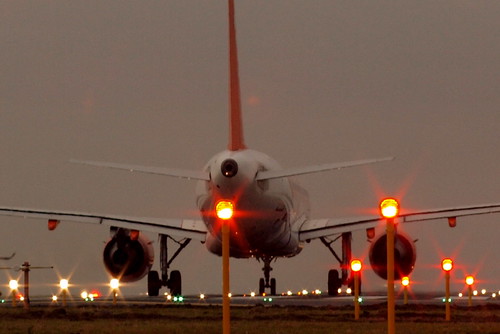
If you want to travel in a way that is not damaging to the environment, ride a bike or drive a solar powered car. If you’d like to travel more carbon efficiently, car pool or take the bus. People don’t realise these things when they criticise aeroplanes, so there is a bit of a stereotype that Airlines are awful businesses killing the planet with their giant metal birds. It’s not like that, and believe it or not, almost all Airlines actually have schemes that they have funded to help show the world that they aren’t all bad. This is a mix between CSR and good PR.
Who’s doing what? 
Alaska airlines collects 70% of it’s on-flight recyclable material and diverts it from landfill. They also changed the materials their on-flight products are made from, for example, they serve coffee in recycled and recyclable cups. Jetblue has on-the-ground recycling initiatives from all the airports they fly out of. At New York’s Kennedy airport, they even compost some of their waste!
Delta Airlines sell their recyclable material (to a company like Plastic Expert) and uses the proceeds to help charities with international housing. Part from their planes are also recycled or incinerated, keeping materials from landfill. They also donate their old fluorescent vests to a charity that turns textiles into iPod covers and other products.
You know those long trucks that carry all your luggage from the terminal to the plane? Well, Spirit Airlines changed from petrol powered to battery powered, just to be good to the environment.
British airways swapped waste bins for recycling bins and saw a 20% increase in their recycling efforts.
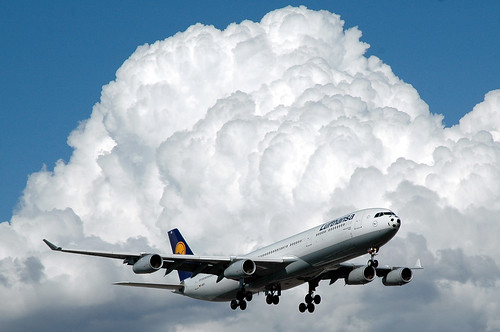
EasyJet have self-imposed targets to reduce carbon emissions all the time, and are investing heavily in a fleet of 100 new Airbus A320s which are 13-15% more fuel efficient than current aeroplanes.
Thomas Cook were the first airline to offer on-flight recycling, collecting paper, cars, plastic and aluminium. They are also part of a scheme called ‘Carbon Offsetting’, which I’m going to talk about next.
Carbon Offsetting
If you haven’t heard of it before, then you will now have the opportunity to decide which side of the fence you sit on. This topic has caused split opinion, with some people feeling that it is a scam, and some people thankful that businesses are at least taking some responsibility. The theory is that a business compensates for the amount of carbon it is generating, but investing money into initiatives which reduce carbon in the atmosphere. We all know that planting trees reduces CO2 in the atmosphere, so is it not as simple as just planting loads of trees? Well, thanks to deforestation and illegal logging, there’s not a huge guarantee that those trees will stand to tell the tale. But that’s not the reason why tree-planting is criticised, there are more questions than answers. Who is counting your trees? What grew where your tree was before and is somebody’s food supply being cut off? Where is all this land for the trees, and why are they growing in emerging countries and not domestically? Do the locals even want the trees, are they in the way?
Along with all these questions are actually some friendly answers. The UK does have a tree-planting quota, and has partnered with schools to plant trees on their school grounds, except it is the children who are planting the trees, and in turn, learning about nature. 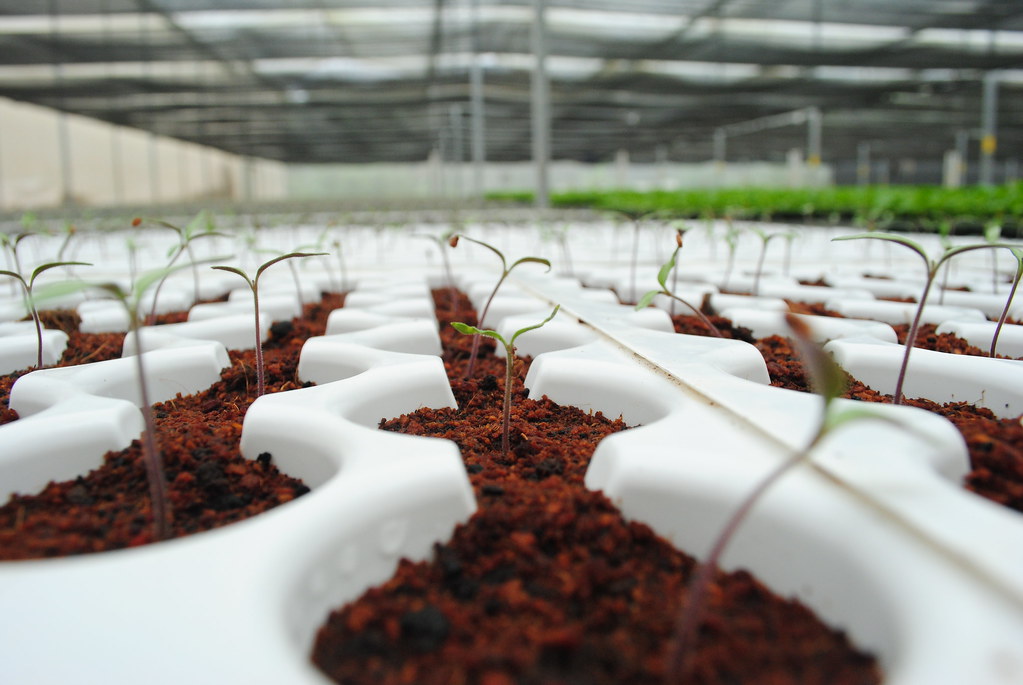
Like with many corporate tactics, offsetting can be used to help them get away with things and push them under the rug. Neutralising one small aspect of a high carbon output business can help forget about the bigger picture of their environment effects. Essentially, the issue is ‘you can’t just pay for absolution’, having money should not make you exempt from guilt or responsibility. Regardless of this, we think Airlines are doing a fantastic job as they try to find ways to improve their fuel efficiency and operations on the ground. Change cannot happen instantly, but these big businesses are hiring teams to help their carbon footprint. What do you think Airlines could do to combat their carbon output? Tweet us @PlasticExpertUK


